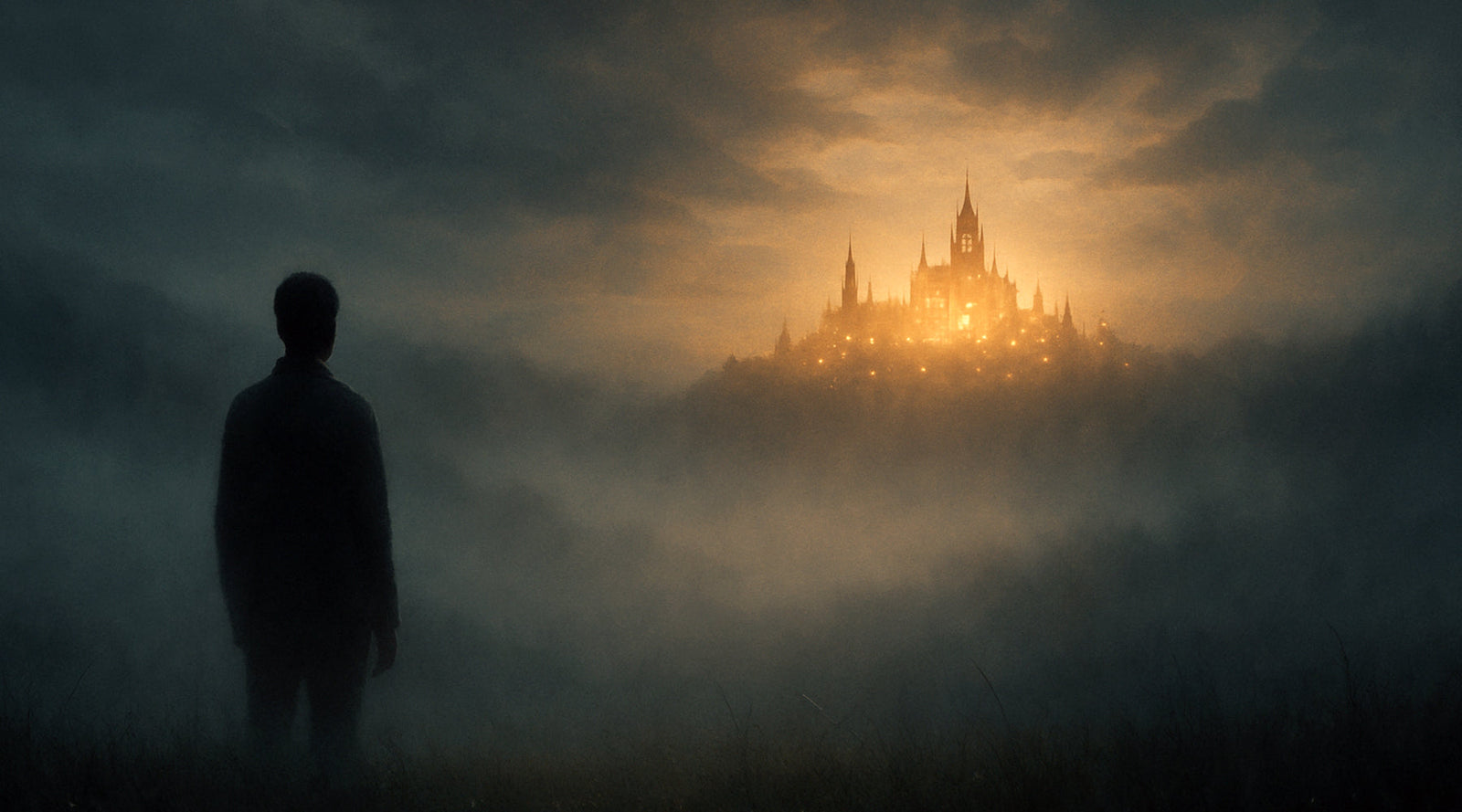Listen to this article
We live in the tension between two verses.
On one side stands James 4:14 like a bare, unvarnished whisper from the mouth of mortality: “What is your life? For you are a mist that appears for a little time and then vanishes.” On the other, glimmering like a promise pressed into eternity, is Revelation 21:4: “He will wipe away every tear from their eyes, and death shall be no more…”
This, then, is the axis upon which all human longing spins—between the vanishing mist and the vanquished grave.
Let us begin with the mist.
It is not a flattering metaphor. Not a monument, not a flame, not a song. Mist is fleeting, formless, easily forgotten. It arrives in the dawn’s hush, glows gold for a heartbeat, then evaporates—lost in the rising sun. That, James tells us, is the essence of human life. Not the marble-browed stoicism of Roman emperors, nor the legacy-laden dreams of Wall Street visionaries. Just vapor. Ephemeral. Ethereal. Empty, if not tethered to something eternal.
James isn’t trying to be poetic. He’s being surgical. Stripping back the skin of our self-importance to expose the fragility beneath. He does not insult us—he liberates us. For once we understand that we are mist, we stop pretending to be mountains.
And yet, how we fight against that truth.
We stack our schedules with urgency, dress up our calendars like cathedrals. We immortalize ourselves in selfies, scream into the void of social media, begging the algorithm to remember us. But the algorithm forgets. Everyone forgets. Even the “greats” gather dust. Fame is just another flavor of fog.
Throughout the ages, cultures have spun their own stories to dull the sting of this reality. The ancient Greeks imagined death as a ferry ride across the River Styx—solemn, slow, poetic. The Norse called it Valhalla—a warrior’s welcome after dying blade-in-hand, bloodied but brave. Hinduism sees life as a wheel, ever-turning, souls reincarnating like records on a cosmic DJ’s turntable. Some modern secularists romanticize death as a return to stardust, a poetic becoming, the body scattered like ash into a meaningless but beautiful void.
But none of these myths—however evocative, however eloquent—can silence the scream we suppress in our quietest hours: Is this all?
Revelation 21:4 answers with thunder and tenderness. “He will wipe away every tear from their eyes…”—note the intimacy, the nearness of God to our pain. This is not the cold detachment of a distant deity but the callused hand of the Carpenter-King, touching your face, brushing away every sting of sorrow like a Father mourning what you mourn.
“…and death shall be no more.”
Not reshaped. Not rebranded. Not recycled. Gone.
This verse is not an escape from death—it is death’s execution. A verdict rendered by the Judge who took on flesh, sweat blood, bore sin, and broke the back of the grave. The Christian doesn’t merely believe in the afterlife—he believes in the resurrection of the dead. A body reborn. A world remade. A forever without funerals.
And yet this hope comes with weight.
Because if we are mist, and He is forever, then everything in this life must be measured against eternity. Every comfort is too thin. Every pleasure too small. Every heartbreak, however deep, will one day be shallow against the joy that’s coming. The Christian walks like a time traveler, living in the now with eyes on the not-yet.
But how does one live like mist, yet walk toward glory?
You live with urgency and with peace. You let go of grudges like they’re smoke in your fist. You create things that point beyond yourself—poems, prayers, love that lingers. You embrace the aching beauty of life knowing it is temporary, knowing that beauty’s impermanence is what gives it weight. You refuse to pretend you’re permanent—and that refusal is a kind of freedom.
The world doesn’t know what to do with death. It hides it behind hospital curtains and Instagram filters. But death is the most honest mirror we’ve got. It doesn’t care how many followers you have. It doesn’t wait for you to hit your goals. It comes like a thief, and it leaves your hands empty unless they are filled with grace.
Christianity stares death in the face and doesn’t flinch. Not because it is naïve, but because it is blood-washed. Death is not our end, but our exodus. The curtain, not the conclusion. Christ kicked the hinges off the tomb so that our graves would become gardens.
There is grit in this gospel.
It doesn’t ignore suffering—it absorbs it. It doesn’t romanticize death—it overthrows it. And it doesn’t promise that life will be painless—it promises that pain has an expiration date.
In the end, the Revelation vision is not escapism. It is the truest homecoming. A world with no sirens. No cancer. No graveside goodbyes. A city where God dwells with man, not as an idea but in resurrected, radiant reality. The place where tears are outlawed and joy has jurisdiction.
And you—mist though you may be—are invited.
So yes, we vanish. We are wisps and whispers, here one moment and gone the next. But in Christ, we vanish into something greater. Mist meeting the sea. Vapor swept into glory. Temporary turned eternal.
You can chase legacy. Or you can chase the Lamb.
You can pretend you're a god. Or you can walk with one.
Choose wisely, pilgrim. The mist is already rising.
And the gates of the New Jerusalem are still open.


